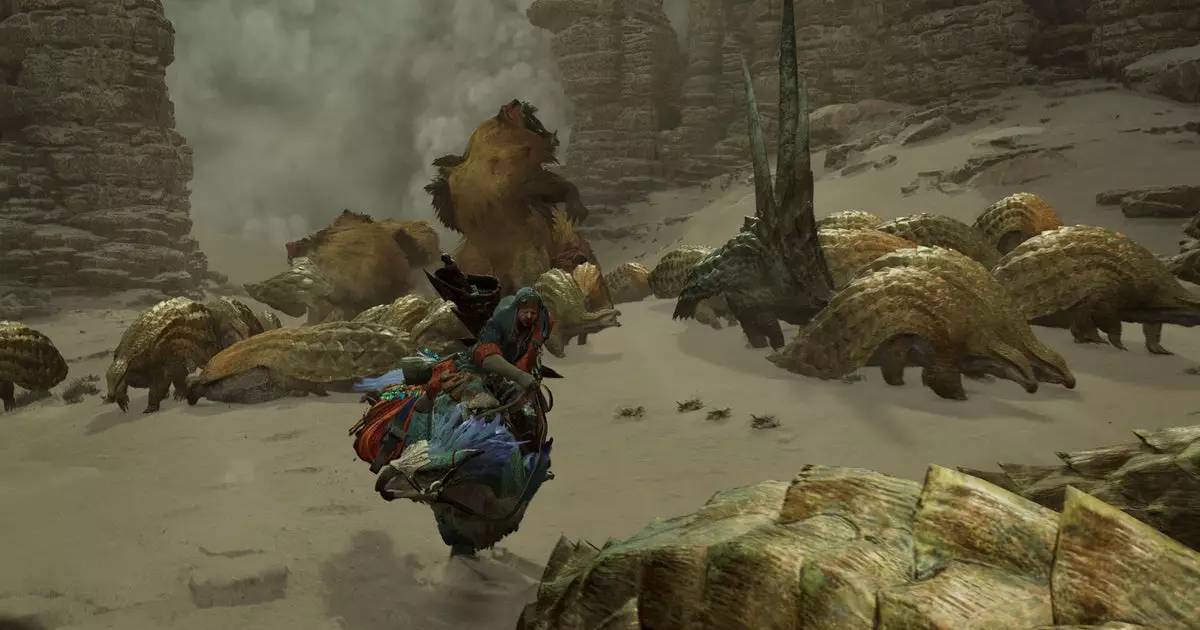Monster Hunter is a franchise that has provided countless hours of entertainment for fans around the globe. With its intricate blend of action, strategy, and deep world-building, each entry tends to garner considerable attention, particularly during beta testing. The latest installment, Monster Hunter: Wilds, has not escaped scrutiny after its recent beta was released. Players have taken to forums and social media to share their experiences, including insights into the all-important combat mechanics, which can make or break the experience. Central to many discussions is an often overlooked yet crucial concept in gaming: hitstop.
The term “hitstop” refers to the momentary pause in animation when a weapon connects with an enemy. This brief moment is key to instilling a feeling of weight and impact, as it reinforces to players that their actions have meaningful consequences. The essence of gaming feedback lies in these tactile responses; when a player swings a heavy weapon, they need to feel and see that impact.
In previous Monster Hunter titles, hitstop played an essential role. Take the switch axe in Monster Hunter Generations Ultimate as an example. The weapon’s overhead swing features a hitstop of eight frames, meaning that for a short duration, the game’s visuals seem to pause, amplifying the sensation of impact. This design choice is not merely aesthetic; it allows players to bask in the satisfaction of a successful blow before their character resumes combat, providing a rhythm that draws them deeper into the game’s world.
In the beta for Wilds, however, many players reported an unsettling shift in the combat feel. Reports surfaced indicating that Capcom had curtailed the hitstop effect, at least for certain weapons. User Blue Stigma highlighted this anomaly, demonstrating through video comparisons that the hitstop duration for the switch axe had been entirely eliminated in beta gameplay. This absence transforms the weapon from a powerful entity wielding significant force to a mere tool that feels less impactful, thereby reshaping user experience almost entirely.
This findings sparked a wave of frustration among players, who found the combat experience in Wilds to be dishearteningly less visceral. If players perceive their actions as lacking substance, their commitment to engage with the game’s deeper mechanics diminishes proportionately. As the community grapples with these feelings, one cannot help but wonder how these changes will affect the long-term player retention and the overall success of the latest installment.
The discourse on various platforms reveals a mixture of disappointment and confusion. While some players have adapted quickly to the changes and rationalized the new approach, others may find the altered feel too jarring to continue participating meaningfully in the game. In a genre where the visceral thrill of a well-timed attack is critical to satisfaction, any reduction in that feedback leads to dramatic repercussions.
Moreover, as gaming evolves, so too do player expectations. Many gamers have grown accustomed to the traditional mechanics they’ve come to expect from Monster Hunter titles. Stripping away essential elements like hitstop could lead to detachment from the experience, resulting in players abandoning the franchise altogether. Developers must remain attentive to the sentiments expressed during betas, using the feedback to refine the mechanics before the official release.
Monster Hunter: Wilds stands at a crossroads. This latest beta serves as a litmus test, gauging player reactions to new design choices and exploring how changes in combat mechanics can reshape an established and beloved franchise. Hitstop may appear to be a technical detail at first glance, but it encapsulates a broader theme of user experience. If Capcom responds to community feedback and revisits the hitstop mechanics before the game’s final release, they can create a robust, satisfying combat experience worthy of the Monster Hunter legacy. Ultimately, the community’s enthusiasm for the franchise is palpable, and how developers navigate these waters could dictate the future trajectory of the series.

